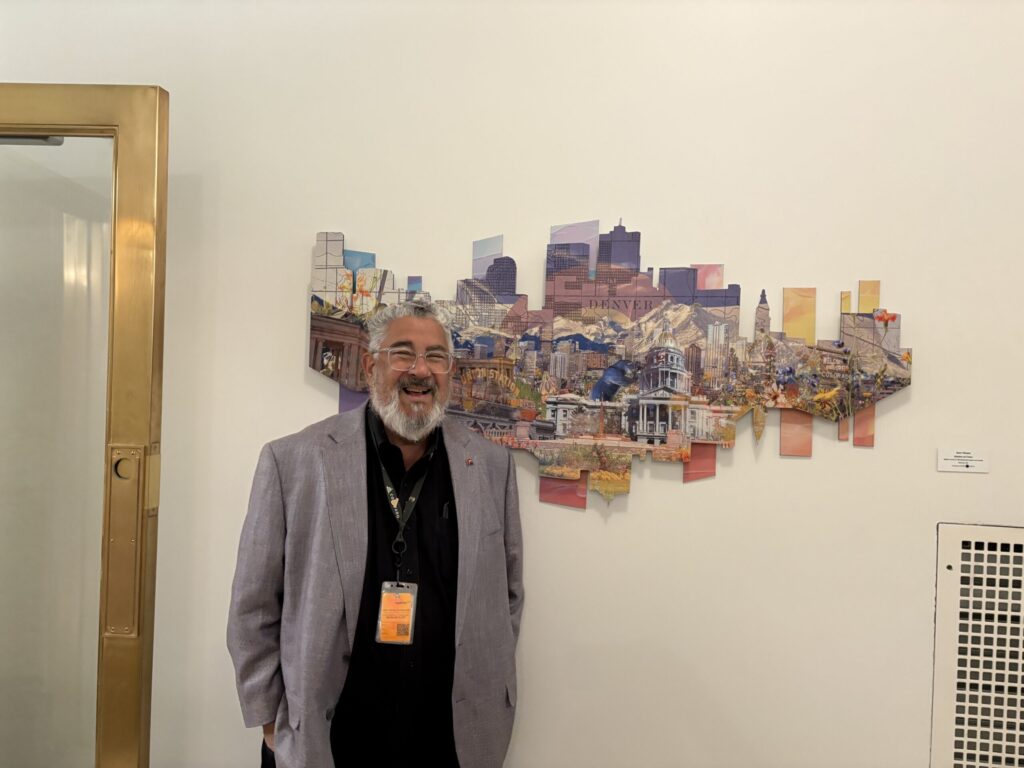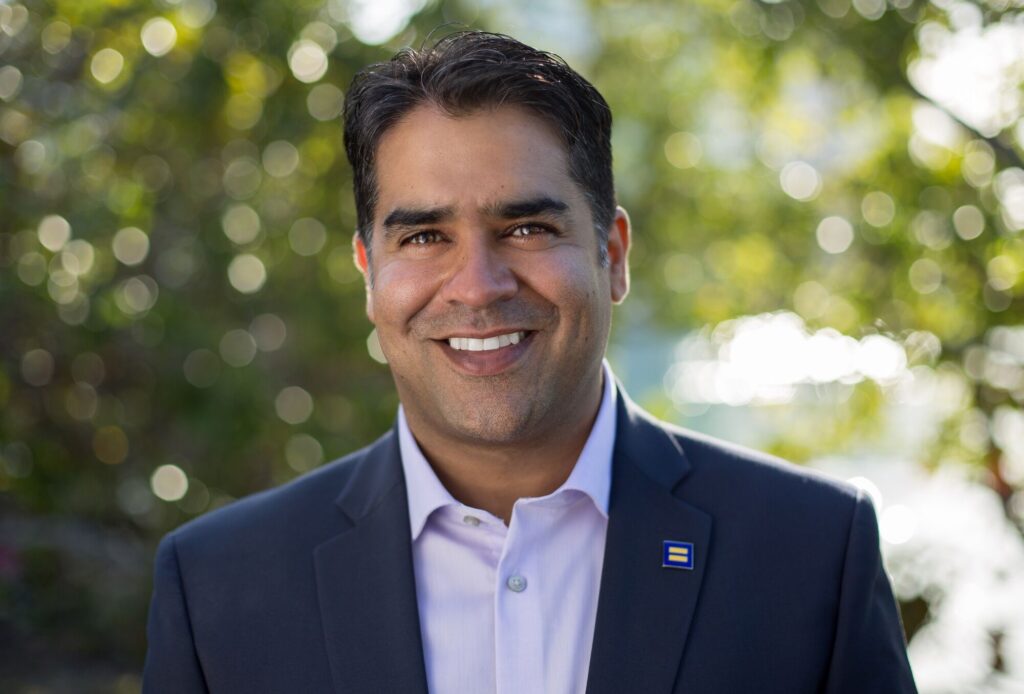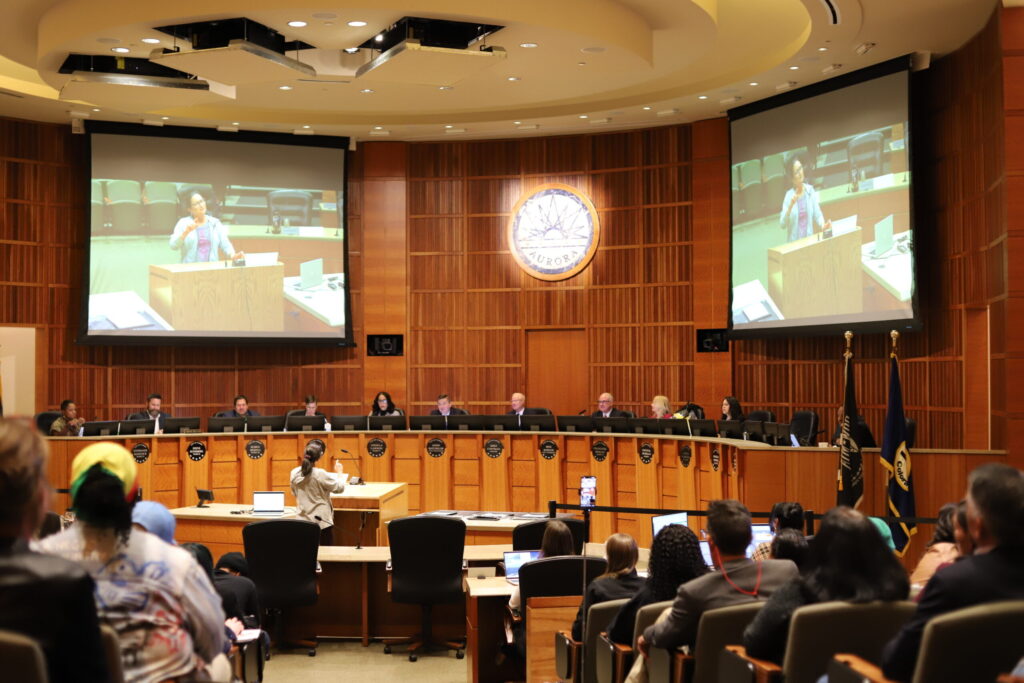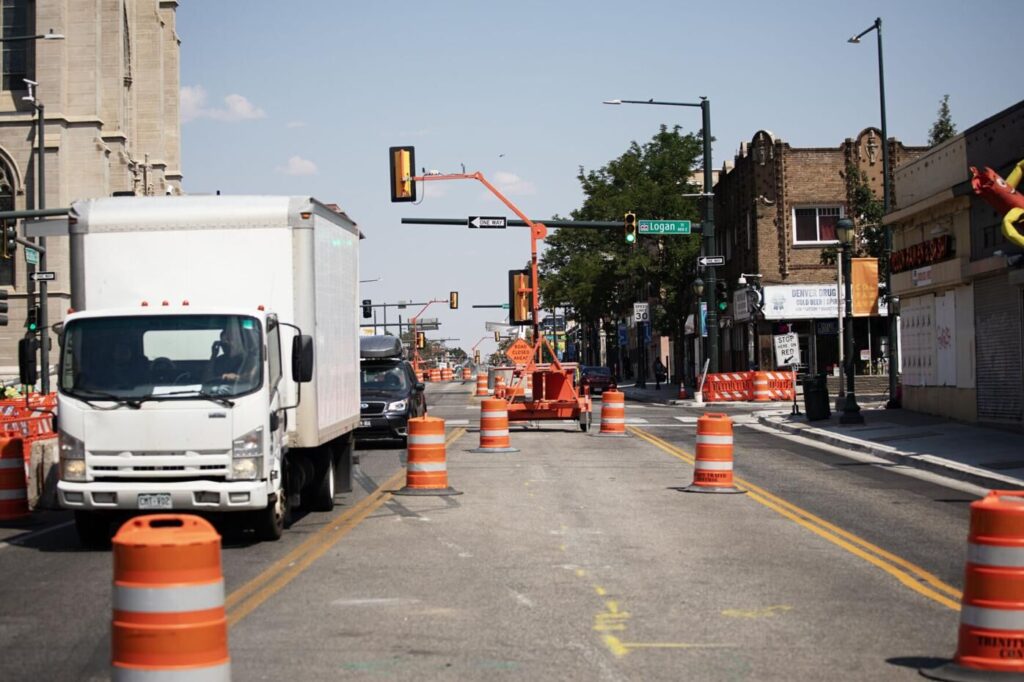Hancock sworn in for 2nd term as Denver mayor

Denver Mayor Michael B. Hancock was sworn in for a second term standing alongside his wife, Mary Louise Lee, on Monday before a cheering crowd of roughly 1,000 at the city’s downtown Ellie Caulkins Opera House.
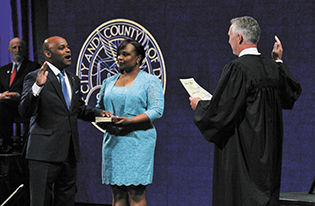
Taking a moment to bask in the city’s recovery from the economic doldrums that greeted him four years ago when he first took office, Hancock boasted that Denver was roaring back, and then made a case for programs aimed at making housing and post-secondary educations more affordable for city residents.
Trumpeting the city’s emergence from the economic doldrums that greeted him when he took office four years ago, Hancock boasted that Denver had brought an end to a $100 million budget deficit and restored services that had been cut, while adding nearly 50,000 new jobs and welcoming 3,200 new businesses. In addition, while “expand[ing] our global reach to new markets in Asia, Europe and Central and South America,” the city has added new parks throughout the city and built 30 miles of trails, he said.
“Thanks to that hard work, we are now experiencing one of the most dynamic moments in our city’s history,” a smiling Hancock said.
“These achievements have not been singular, nor do they belong to one person,” he continued. “These achievements have been hard-fought together, and harder-won together. We are transforming this city while holding dear the values of who we are. We have positioned ourselves at the vanguard of progress and the whole world is noticing, because it is Denver.”
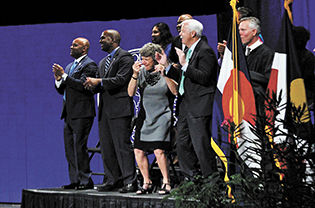
Hancock, Denver’s 45th mayor, was reelected by a wide margin in May against underfunded and mostly unknown opponents.
Along with Hancock, Denver County Court Presiding Judge John Marcucci also swore in Clerk and Recorder Debra Johnson, who was elected to a second term in May, and City Auditor Timothy O’Brien, who takes over for term-limited Dennis Gallagher. Also taking the oath on Monday were seven new city council members and six who are returning. Newcomers include Rafael Espinoza, Kevin Flynn, Kendra Black, Paul Kashmann, Jolan Clark, Wayne New and Stacie Gilmore. Veterans include Paul Lopez, Mary Beth Susman, Christopher Herndon, Albus Brooks and at-large members Debbie Ortega and Robin Kniech.
Hancock gave a shout out to Johnson, praising her for being one of the first clerks in the country to issue marriage licenses to same-sex couples. With her help, he said, “we declared that love is love with civil unions and now, with the assent of the Supreme Court, full marriage equality,” drawing sustained applause from the audience.
In his second term, he said, he intends to ask city voters to fund elements of what he termed “the Corridor of Opportunity,” stretching from downtown to the National Western Center – home to the National Western Stock Show for a few weeks in January, plans include making it a year-round destination that can “connect the best of our past with the immense possibilities of our future” – on to Denver International Airport.
He stopped to acknowledge mayors and commissioners from Adams County, who have worked out a deal with Denver to allow development around the airport, part of what the mayor has called his vision of an “aerotropolis.”
“As our gateway to the world, DIA already brings more than 26 billion dollars a year to the state’s economy, and that, too, is just the beginning,” he said. “After more than two years of work with Adams County and the cities surrounding the airport, we have come together with a proposal that will bring new types of commercial business and thousands of new jobs to the airport and neighboring communities, with all of us sharing the economic benefits.
Another measure likely headed to Denver voters this fall will be a sales tax increase to pay for a scholarship and loan-assistance program – backers said this week that details were still being worked out – to help Denver students attend college and other post-secondary schools.
With a nod toward Kniech, who has made affordable housing one of her signature issues, Hancock vowed to develop a program to come up with $15 million annually to build some 6,000 units that fall into the category.
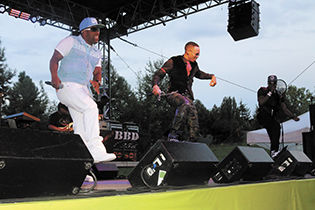
“Already, we have spurred the creation of almost 2,000 new affordable units, we have helped hundreds of families with down payment and mortgage assistance, and created a $10 million dollar revolving loan fund to keep the momentum going. But it is not nearly enough,” he said. “I hear from families who fear they will be priced out of their homes, or forced to live far from where they work or go to school. We cannot afford to lose housing for our teachers, firefighters and nurses any more than we can afford to lose businesses because their workers cannot find decent housing.”
Then Hancock called on city council to solve “what state lawmakers won’t,” by tackling the construction defects problem developers have said inhibits construction of condominiums and other less expensive dwellings.
“New realities demand new ways of thinking, so we will be increasing our focus on mobility,” Hancock said. “That takes vision, that takes leadership and that takes significant investment. Over the next year, I have tasked my team with creating actionable steps to safely and efficiently move you around this great city of ours.”
While he ticked off a list of major enhancements to city thoroughfares and intersections, Hancock pointed out that driving an automobile isn’t the only way to get around Denver.
“More people are walking, biking, busing, scootering, Ubering and tuk-tuking around town,” he said. “We need more sustainable choices, and it is clear we will not receive meaningful federal aid as Congress continues its failure to pass legislation that will help cities fix their aging infrastructure.”
– ernest@coloradostatesman.com








